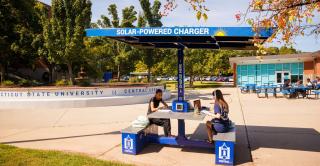
Central builds momentum toward a sustainable future
Central’s Sixth-Year Certificate in Reading & Language arts is an advanced degree program for educators interested in strengthening their skills in literacy instruction and applying them in the classroom or as reading specialists and/or language arts consultants. Program is aligned with the standards for the Preparation of Literacy Professionals 2017 of the International Literacy Association (ILA).